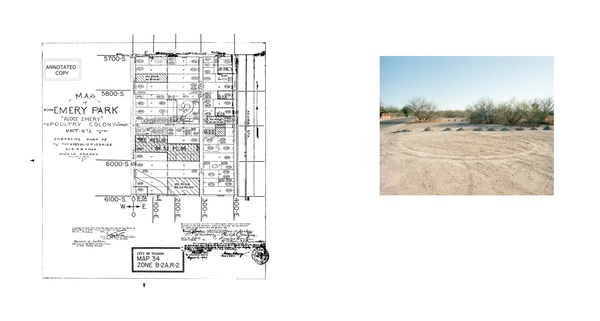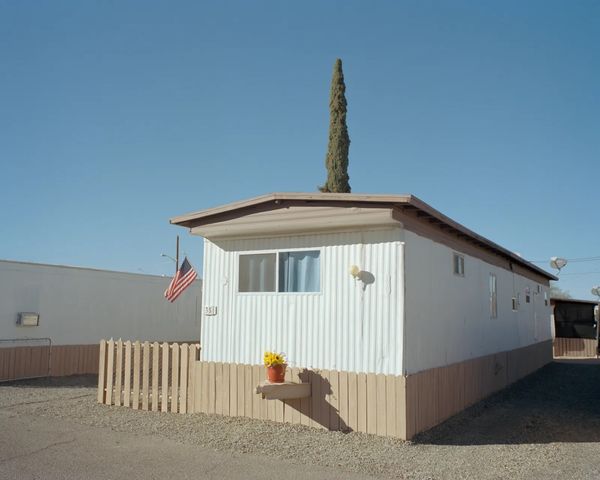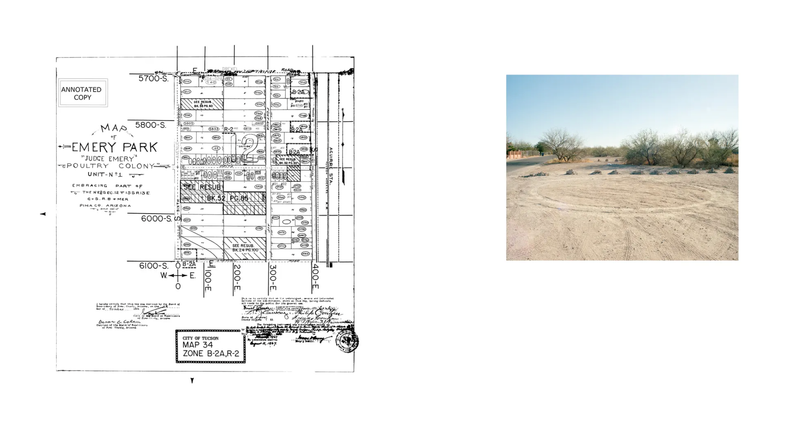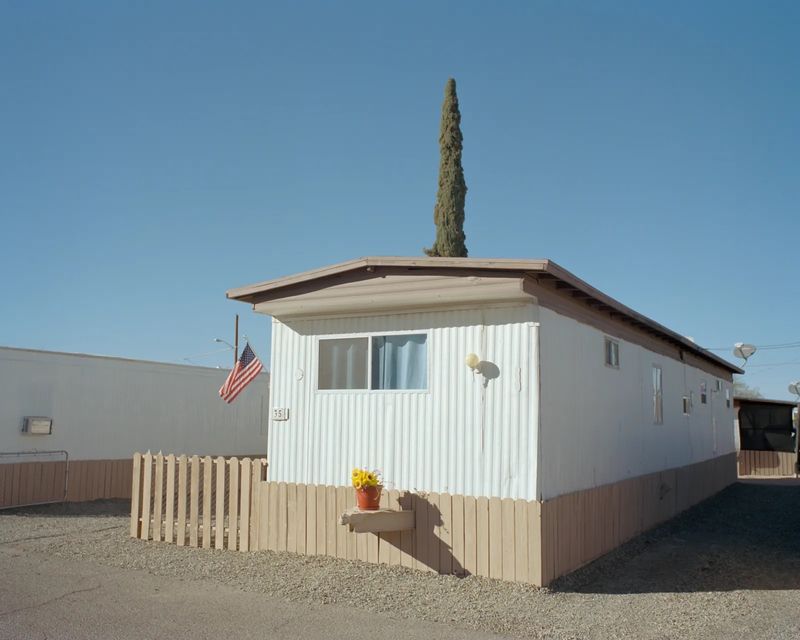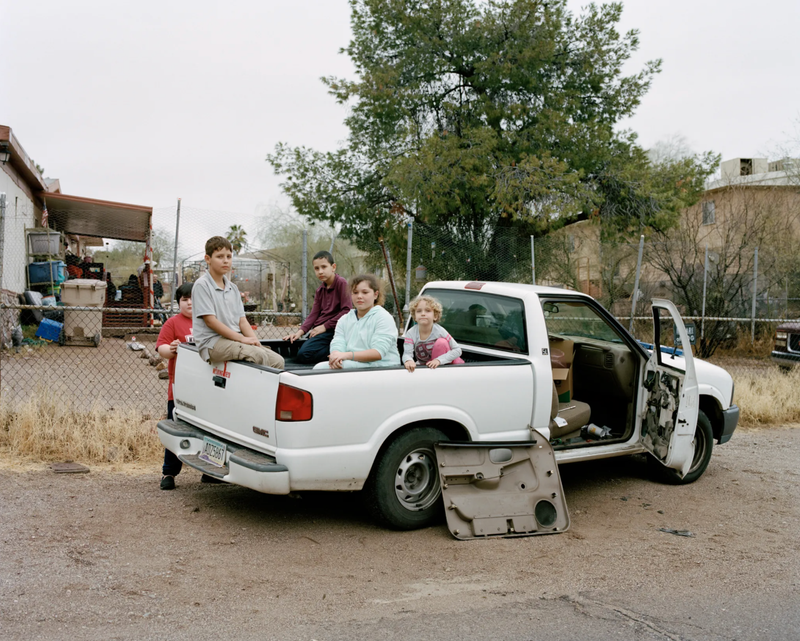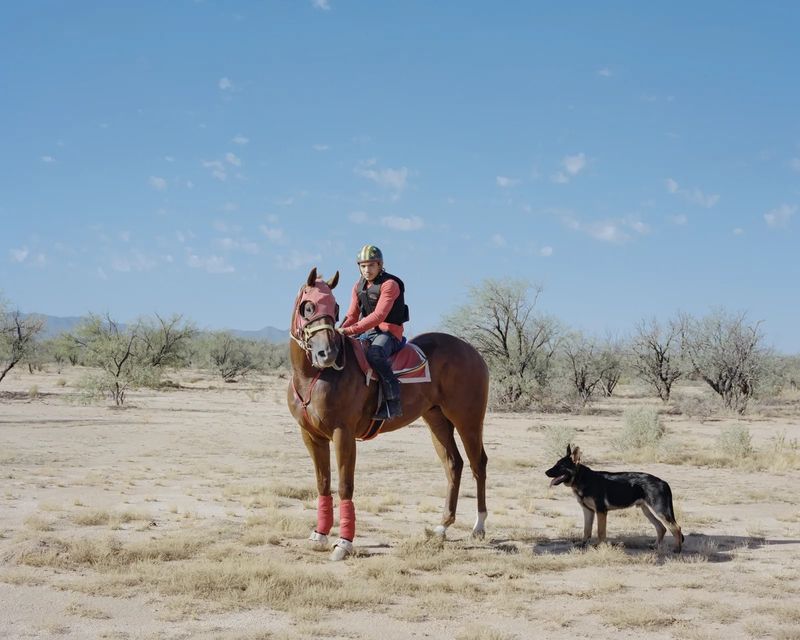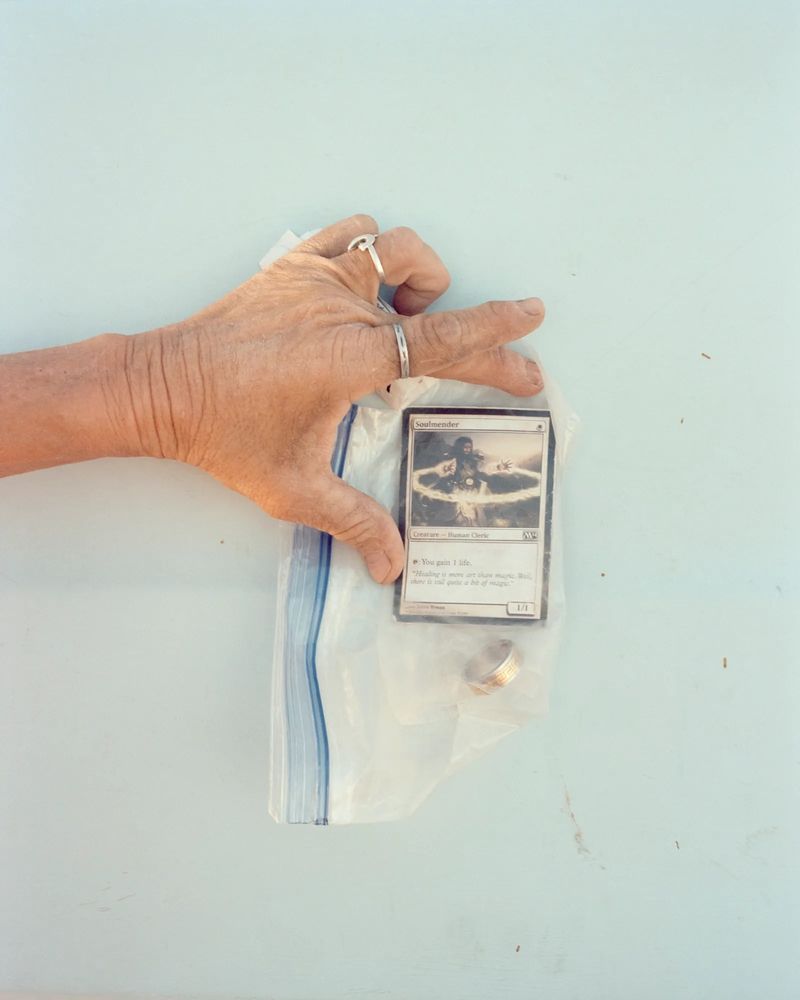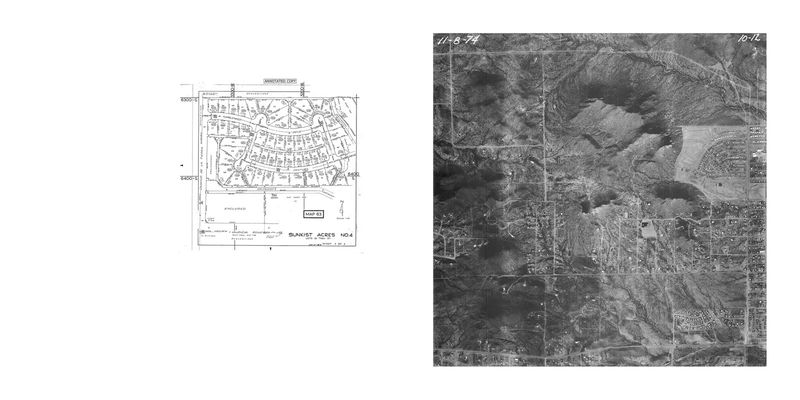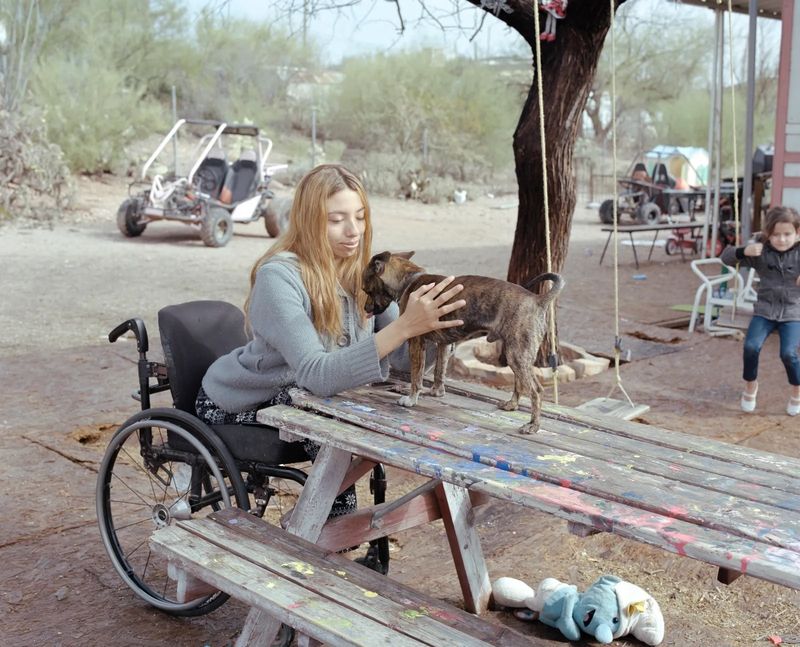Life on the Periphery of Rapid Urban Expansion
-
Published24 Mar 2021
-
Author
Jordan Putt positions historical land survey documents alongside modern landscape shots and portraits of childhood friends to create a comprehensive visual study of the city he says raised him: Tucson, Arizona in southwestern United States.
Jordan Putt positions historical land survey documents alongside modern landscape shots and portraits of childhood friends to create a comprehensive visual study of the city he says raised him: Tucson, Arizona in southwestern United States.
Jordan Putt began his Field Book series while working as a land surveyor in Tucson, Arizona. As meticulously as he would trace the limits of properties, he started to collect photographs at the edges of the city. His images are quiet, softened by a pastel tone evoking the surrounding desert. People are mainly posing, stepping away from the everyday bustle for a while. Yet, they are never anonymous nor random. Each of them could be a character – the man in white with the three white dogs; the woman with the balloon bouquet; the man with the three golden watches; the jockey. Even objects, trees, and animals are charged with personality. Dogs have pink hair; beers cans cover parking lots like an army of aunts; and cactii occasionally have eyes.
Altogether, the series forms a survey of space not much explored. “Drawing on the early lineage of documentary surveys of the west, this work focuses on those who have typically been left out of the heroic stories of the western frontier, and remain on the periphery of urban expansion”, Putt explains. Responding to this approach, there is a sense of “missed opportunity” floating in the series – the table at the corner of a restaurant is empty yet not tidy, as if it hadn’t been used in a while; the bottles hanging on a dead tree are waiting to be shot; the jockey seems far from his tracks and the children waiting for an adventure trip on board a pick-up truck might never see it as we discover the broken door of the vehicle.
There is no sadness nor judgment though. It’s more like a document of a suspended time. The fact that Putt includes historic records of the land along with his photographs accentuates this phenomenon. Just like the coordinates he recorded, his pictures are evidence of reality at a certain moment in time. And while the geographic growth seems to go at an unstoppable pace, the growth of those who inhabit the periphery seems meant to stagnate. In one photograph, a role-playing game card featuring the Soulmender reads “You gain 1 life. Healing is more about art than magic. Well, there is still quite a bit of magic.” This photograph alone acts as a metaphor for the series and he hopes it works as a piece of art: “Field Book functions similarly to the early documentary surveys to examine the priorities of those planning our cities to explore how we may be able to extend economic resources to those who remain in less accessible regions of the country.”
--------------
Jordan Putt is a photographer whose work responds to issues of place, identity, and community. He earned a BA in Psychology from Northern Arizona University and his MFA from Columbia College Chicago. He was a 2018 recipient of Columbia College Chicago’s full-tuition Graduate Fellowship as well as a 2020 recipient of the Albert P. Weisman Award. Follow him on Instagram.
Laurence Cornet is a writer and curator based in Paris focusing on cultural and environmental issues. She is also the editorial director of Dysturb.
--------------
This article is part of our feature series Photo Kernel, which aims to give space to the best contemporary practitioners in our community. The word Kernel means the core, centre, or essence of an object, but it also refers to image processing.

